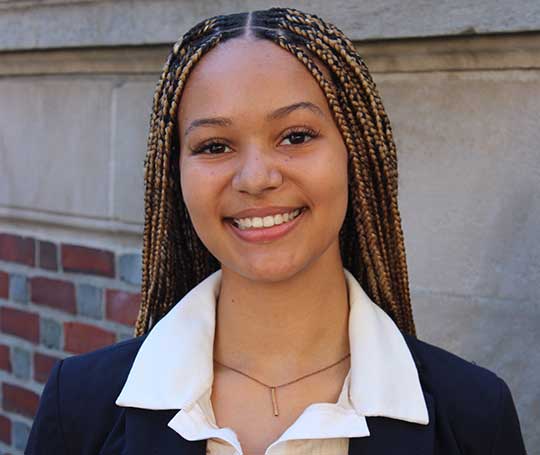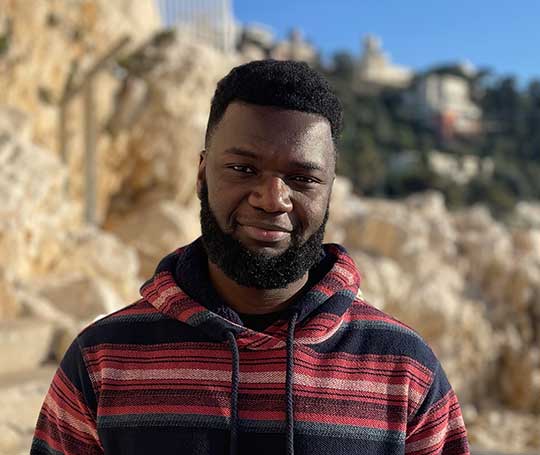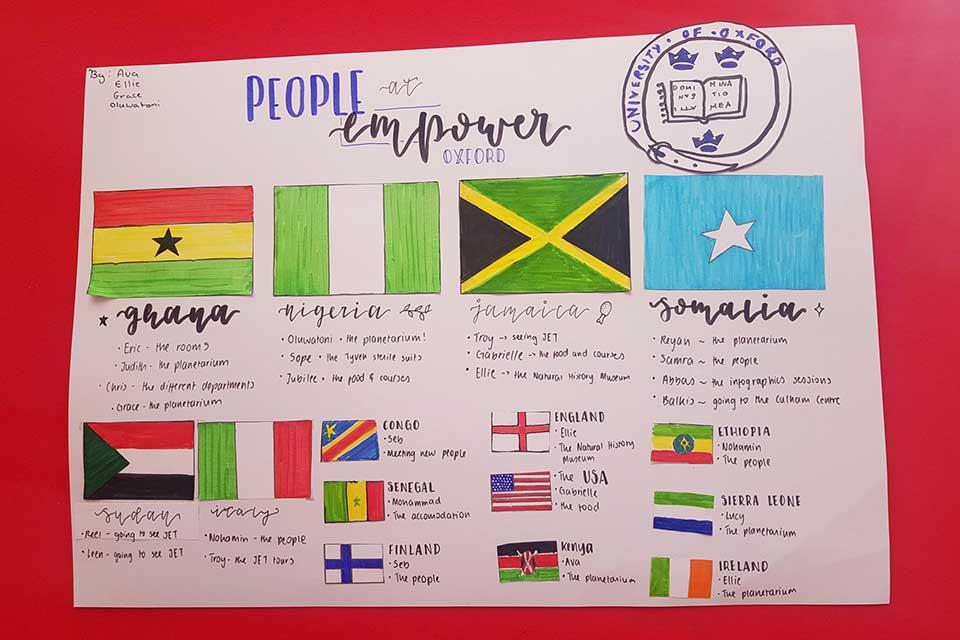EMPower Oxford is a programme initiated and led by the Department of Physics and supported by the Department of Materials Science, to inspire and support Year 10 students of Black heritage to pursue higher education and careers in STEM. The carefully designed programme comprises a mix of online workshops alongside a three-day residential in Oxford, followed up with academic group mentoring in the final run-up to GCSEs.
This year’s residential welcomed some 20 students to Oxford in March where they not only got an insight into a range of different fields of study but also got a taste of student life staying at Mansfield College. The cohort enjoyed a workshop on the making of photovoltaic solar cells in our undergraduate labs with accompanying tours of our photovoltaic research labs; a session of night-sky observing as well as a planetarium show; an industry visit to the Joint European Torus (JET), the world’s largest and most advanced tokamak at Culham; tours of the Oxford Physics Technical Excellence Centre to understand the links between physics and engineering; and a workshop on creating infographics to distil and communicate information.
Parents and carers were invited for the final day with sessions on how to best support the students to further explore physics and materials science; the event concluded with a graduation ceremony for the participants, watched by their family and supporters.
During the residential, the young students had the opportunity to meet current students and researchers of Black heritage from the Department of Physics to hear first-hand about their own experiences of working and studying in STEM.
‘We are particularly proud of this programme,’ explains Dr Sian Tedaldi who manages the access and outreach team in the Department of Physics. ‘It is a carefully targeted intervention, now in its third year, that has real impact. We have had really positive feedback from participants and we can see for ourselves how enthusiastic and engaged the students are during the online sessions and it is so rewarding to see this first-hand during the residential. The success of EMPower is due to the support given by DPhil students and faculty in both Physics and Materials who give up their time to help run the project. Their energy and expertise bring the programme to life and help to make it meaningful and impactful to the students.’
 Samantha O’Sullivan, DPhil student, delivered online webinars and lab tours and acted as group guide for EMPower
Samantha O’Sullivan, DPhil student, delivered online webinars and lab tours and acted as group guide for EMPower
I am a DPhil student in Theoretical Physics, and I was so excited to serve as a student ambassador for the EMPower programme this year. This is my second year helping and it is always a highlight of my year. As an African American woman in physics, I know the challenges that come with underrepresentation in science. It can make the world of difference to see people who look like you working in science.
My path to the Department of Physics at Oxford has only been made possible by inspiring mentors early in my life. At a young age, I had several inspiring Black science and maths teachers who encouraged me to work hard and explore physics research. I believe teachers make all the difference, and I was blessed to have ones that taught me to love physics and most importantly, feel that I was capable of studying it – even good at it. I attended Harvard University for my undergraduate studies, where I met Professor Jenny Hoffman as my first-year advisor through the physics department. Professor Hoffman inspired me so deeply as a woman in science who is passionate about increasing racial diversity in physics, and she continued to advise me as a research supervisor and mentor throughout my four years and beyond. I graduated Harvard with a joint bachelors degree in both physics and African American studies and served in various organisations promoting racial equality on campus. I continue to serve on the student council of the National Society of Black Physicists, which does a fantastic job to encourage and connect Black physicists around the world.
In 2021 I won a Rhodes Scholarship which brought me to the Department of Physics at the University of Oxford. I immediately sought out opportunities for outreach to the Black community in the UK. I found EMPower and jumped at the opportunity to help out. I feel a deep sense of commitment to encouraging the next generation of Black physicists through mentorship, in the same way I have been encouraged. Prestigious universities like Oxford can seem daunting to underrepresented students, so my goal is to show students: there are people here who look like you; you are welcome here; you can excel here. EMPower is so great because students get to stay overnight in an Oxford college, eat in the dining halls, and visit various physics labs. My favourite part of the weekend was touring physics labs with the students – there were a few labs I had never seen myself! It was such a blessing for me to talk to the students about their interests and goals and to encourage them to apply to Oxford University. Many of them reminded me of myself many years ago – curious but a bit unsure. I could see their confidence increase by the end of the weekend. I hope to continue to help with EMPower throughout my time at Oxford, and hopefully see some of the students go on to great careers in physics!
 DPhil student Jordan Iga delivered one of the initial webinars and led on astrophysics activities during this year’s EMPower residential
DPhil student Jordan Iga delivered one of the initial webinars and led on astrophysics activities during this year’s EMPower residential
The importance of programmes such as EMPower can’t be understated. For those from disadvantaged and underrepresented backgrounds, university can be an incredibly isolating experience, and seeing people who look like you and maybe have similar backgrounds makes such a difference. This especially applies to universities such as Oxford. Having benefited from similar programmes in the past, I chose to get involved with EMPower because it’s now my turn to support the future generations of Black scientists.
Something that particularly resonated with me was a conversation I had with one of the organisers regarding physics education research. The idea was that when it comes to progression in physics, people from disadvantaged backgrounds often make one connection or network that significantly contributes to their career. In my case, I decided that I wanted to be an astronomer when I was 13, but I was not prepared for the massive culture shock I’d experience in moving from my home to Edinburgh for my undergraduate degree. Were it not for the support and mentorship of my previous supervisors, it is unlikely I would be in the same position as I am today.
Reflecting on the event, I find myself inspired by the enthusiasm of the EMPower students. Identifying constellations in the planetarium and discussing a range of topics in astrophysics with a young and curious audience was a wonderful experience that I look forward to repeating in the future. I hope that the students are inspired to continue exploring physics and astronomy, and that studying physics has as great an impact on their lives as it has on mine.

